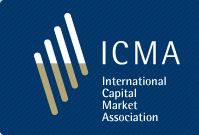I know something you don’t know…

Anthony Peters, SwissInvest Strategist
Another grand announcement from the happy world of bond syndication. New ICMA rules mean that syndicate desks will no longer be permitted to offer any “bilateral book updates”. In other words, the quiet little conversation in which investors are being given a heads-up about how a new deal is going has been kicked into the long grass. Presumably, this is intended to level the playing field for all investors.
If that’s the plan, what else will have to change? Presumably, there will be no more new issue information distributed over Bloomberg – there are still plenty of firms who invest money who cannot afford a Bloomie – and posters will now be displayed in all stations, hospitals and town-halls giving public updates of the bookbuilding process – a new poster every time there is a change in the price whisper, price talk and price guidance; size whisper, size talk and size guidance; timing whisper, timing talk and timing guidance.
Plus, in order to give full and free access to all investors, red herrings will be offered at least five days before books open so that all players have equal opportunity to study the documentation, the credits involved and place their orders after full and careful consideration. Clearly, no more one-on-one roadshow meetings will be possible.
Although equities trade in small and manageable units – pence or cents per share – minimum bond unit sizes are getting bigger and bigger. Must we suppose this is also to protect potential private bond investors from whatever risk it is that they don’t need to be protected from if they buy stocks?
In terms of risk, this is a line of thinking that is simply impossible to follow. The bondholder, especially the senior one, is always miles ahead of the shareholder in the event of a bankruptcy and yet the system contrives to lock private investors out of the game.
An old and now largely forgotten Swiss private banking rule from the era when protection of a client’s investment capital was still at least equally important to wealth managers as earning fees was that the fixed income element of a portfolio should be equal to the investor’s age.
With minimum increments often now €100,000 or more this sort of asset allocation is impossible, unless the client is prepared to pay a considerable part of the performance in fees in order to acquire a managed bond fund.
Equality is first and foremost about giving all investors equal access to markets – not necessarily only information.
In attempting to become holier than thou, bond syndicate desks have in fact created a primary market that is significantly skewed in favour of large institutional investors, be they real money or leveraged. Smaller, fast-money accounts, which are just as much part of the overall biotope, are being squeezed out.
The agricultural community is consistently being told that all God’s creatures need space to feed and breed. Why should the rules of the natural world not also apply to markets? Bonds aren’t equities and equities aren’t bonds, but there is no sense in trying to replicate information flow in the same way if access is being denied to the Aunt Augustas for whom the regulators created investor protection regulations in the first place.
Next up, it appears, is a European version of TRACE, the American bond trade reporting system. Ah, more transparency! How fickle transparency can be despite all the good intentions was demonstrated in 2004 when a bunch of Citigroup traders took EuroMTS, the European government bond trading platform, to pieces and were severely punished for proving that liquidity can’t be legislated for and still disappears at the first whiff of fear. Once again, the authorities shot the messenger.
The rule banning these so called bilateral book updates may mean that an even smaller group of privileged chums will get the inside colour – albeit “off-line”. Leaking this information might now be immoral but it is not illegal, not like proper insider trading.
How a serious and thoughtful investor is supposed to gauge how to manage his new issue order when so much relevant information is being withheld has never been fully explained. If bilateral updates are banned, has anything been done to manage formal and public ones?
Anthony Peters is a strategist at SwissInvest. He also writes daily commentary on IFRe.com.
